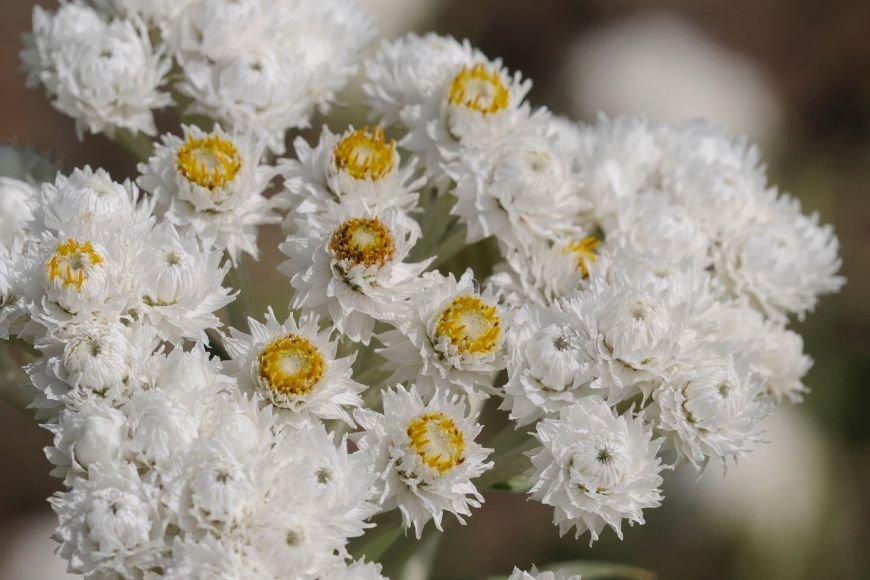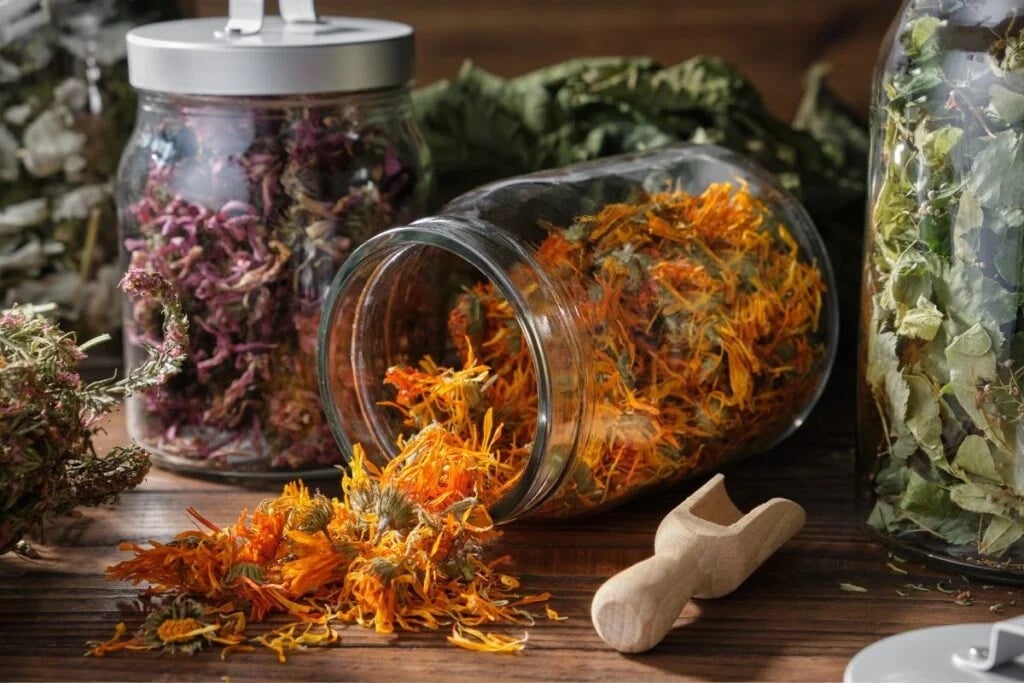Life everlasting is a summer annual that belongs to the Daisy family. For gardeners, it’s a low-maintenance plant with creamy white, fragrant flowers.
But there’s more to this herb than its captivating fragrances. Native American tribes used the sweet everlasting herb for various medicinal purposes, not just parts of it but the entire plant.
So, you’re probably wondering, what are the medicinal properties of this magical herb? And is it entirely safe to drink as tea?
Well, that’s what we’ll tell you in this article! Grab a cup of your favorite tea and keep reading to learn about all the possible benefits and side effects of the sweet everlasting.
The Magic of the Sweet Everlasting Herb
Life everlasting is known by many names, including rabbit tobacco, cudweed, cotton grass, and sweet everlasting. It’s scientifically known as Pseudognaphalium obtusifolium.
Medicinal usage of this herb goes way back to Native Americans, especially the Yuchi tribe. They called it “tsodasha,” or “the spirit medicine,” for its healing properties.
Fun fact: Rabbit tobacco was so sacred, that the Yuchi people had certain rituals for collecting it. One of these rituals happens on the day of obtaining the plant, as they fast from midnight until the harvesting is over.
This further shows their appreciation for such a potent herb. Not only that, but it was an essential part of their traditional medicine.
Sweet Everlasting Possible Benefits and Uses
A cup of sweet everlasting tea can be useful for many conditions. Here are some of them:

1. Helps Treat Sore Throat
A sore throat is an annoying condition that can make it harder for you to swallow. Besides, you might feel that your throat is dry and scratchy.
Luckily, a cup of white cudweed might soothe your itchy throat. Not only will it relieve the symptoms quickly, but it’ll also help with the cause of this condition.
The thing is, a sore throat can be a symptom of upper respiratory tract disease, strep throat, or a common cold. And sweet everlasting might be able to treat these diseases.
2. Might Relief Asthma and Chest Complaints
Struggling to catch your breath? Well, cudweed tea may relieve asthma symptoms and other chest complaints.
Yet, there isn’t enough research to support this claim. So, if you can’t rely on the tea alone to treat chest conditions. Instead, you should contact a healthcare professional to get the right medication.
Still, a cup of cotton grass might ease the symptoms until your doctor’s appointment.
3. Can Promote Calmness
I don’t know about you, but I always seek out a way to wind down and relax after a stressful day. And a cup of sweet everlasting flowers and leaves tea checks all the boxes.
You’d be surprised to know that these flowers have mild sedative properties. Of course, it’s not strong enough to induce “sedation,” but it can promote calmness and relieve anxiety symptoms.
Fun fact: Traditionally, people have added dried cudweed flowers to their pillow stuffing to help them sleep better.
4. May Help With Fever
The Kosati tribe found out that rabbit tobacco leaf decoction can help with fever. In fact, they used to bathe those who were feverish in a bath of this magical herb. Native Peruvians also used the bark to cure fevers associated with malaria.
The thing is, fever can be an alarming symptom of infection and serious diseases. So, if your body temperature is higher than normal, it’s best to contact your healthcare provider.
5. Might Have Diuretic Properties
Native American tribes used these perennial herbs as a diuretic to treat various conditions. In other words, it has the effect of the “water bill.” That means it can help with high blood pressure and fluid retention.
6. Can Help With Various Gastrointestinal Issues
Aside from their healing properties, sweet everlasting herbs can expel intestinal worms. It might also ease some of the symptoms of inflammatory bowel disease (IBD).
Cotton Grass Potential Side Effects
Unfortunately, there isn’t enough information about cotton grass safety and its potential side effects. It’s likely safe to drink in moderate amounts.
Yet, for pregnant and breastfeeding women, it’s best to stay on the safe side and skip out on this one.
Additionally, if you take blood pressure medication or have a liver condition, you should contact your healthcare provider before consuming cudweed.
Allergies
If you’re sensitive to the Asteraceae/Compositae plant family, you might be allergic to rabbit tobacco.
How to Prepare Life Everlasting Tea

Preparing a cup of rabbit tobacco herbs is as easy as it gets. You’ll get to enjoy a cup of this magical herb in less than 10 minutes.
All you need to do is steep one to two teaspoons of the flowers and leaves in a cup of boiling water. Then, allow the infusion to steep for around seven minutes, and that’s all!
Pro tip: We recommend using honey as a sweetener instead of sugar to maximize the benefits of your drink.
Frequently Asked Questions
Are cudweed herbs safe?
The everlasting herbs are likely safe to consume, but there’s not enough research to prove that.
Is the sweet everlasting plant easy to grow?
Yes. This marvelous plant requires low maintenance. Besides its medicinal properties, it can also attract beneficial pollinators to your garden, not to mention that the blooms have a captivating fragrance.
Can I use everlasting herbs on my skin?
Yes. The plant contains a great amount of antioxidants and fatty acids that can nourish your skin and fight aging. On top of that, it’s perfectly safe for sensitive skin.
Wrapping Up
Life everlasting herb has tons of beneficial uses. Native Americans used this herb to treat fever, chest complaints, and gastrointestinal issues.
In addition to that, a cup of cudweed flowers and leaves can lower anxiety levels and promote relaxation. Happy sipping!

